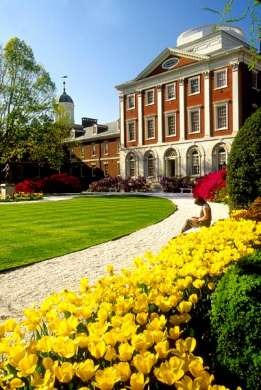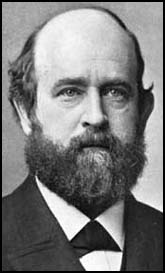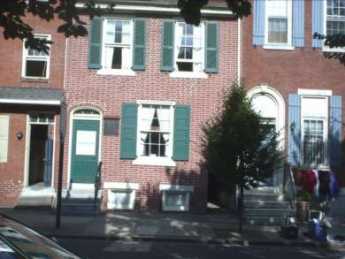Related Topics
Philadelphia Politics
Originally, politics had to do with the Proprietors, then the immigrants, then the King of England, then the establishment of the nation. Philadelphia first perfected the big-city political machine, which centers on bulk payments from utilities to the boss politician rather than small graft payments to individual office holders. More efficient that way.
Historical Preservation
The 20% federal tax credit for historic preservation is said to have been the special pet of Senator Lugar of Indiana. Much of the recent transformation of Philadelphia's downtown is attributed to this incentive.
Particular Sights to See:Center City
Taxi drivers tell tourists that Center City is a "shining city on a hill". During the Industrial Era, the city almost urbanized out to the county line, and then retreated. Right now, the urban center is surrounded by a semi-deserted ring of former factories.
Tourist Walk in Olde Philadelphia
Colonial Philadelphia can be seen in a hard day's walk, if you stick to the center of town.
Sixth and Walnut over to Broad and Sansom
 In 1751, the Pennsylvania Hospital at 8th and Spruce was 'way out in the country. Now it is in the center of a city, but the area still remains dominated by medical institutions.
In 1751, the Pennsylvania Hospital at 8th and Spruce was 'way out in the country. Now it is in the center of a city, but the area still remains dominated by medical institutions.
Henry George, Single Tax

|
| Henry George |
Philadelphia was the birthplace of Henry George at 413 South 10th Street between Pine and Lombard, in 1839. The house has been restored to its 1839 condition and serves as the Philadelphia extension of the Henry George School for Social Studies, where you can take a course or two on the economic theories of Henry George, especially the Single Tax. If you do so, you can join the rest of us in pondering whether Henry George was a genius or a nut; he certainly combined some elements of both.

|
| Henry George House |
Leo Tolstoy no less, felt there was a conspiracy to keep people from knowing about the theories of Henry George, saying, "People do not argue with the teaching of George, they simply do not know it." In 1879 Henry George published a book, "Progress and Poverty which made him so famous he became a candidate for Mayor of New York City. Although he lost the election, he outpolled the third candidate, Theodore Roosevelt. The underlying thesis of his book would probably not find much approval among contemporary economists, who would likely say he was fooled by a cyclic increase in the value of land as an asset class. What he said was there was a remorseless trend of land to increase in value, while the proportion of wealth represented by labor and capital steadily diminished. Nevertheless, it can still be argued that: proceeding from the wrong premise about the causes of poverty, he might have propounded an attractive cure -- the single tax. Henry George asserted that we should stop taxing buildings ("improvements") and place all municipal taxes on land.
There could be something to this. It is uncomfortably true that your taxes go up whenever you build a new building or substantially renovate an old one. The increased taxation of improvements is a disincentive to the building, renovating and improving a property. Placing taxes on the underlying land, by contrast, would create a positive incentive to build something and put the land to use. Evidence can in fact be produced that partial adoption of this principle has caused considerable prosperity in Pittsburgh, notwithstanding that city's recent flirtation with bankruptcy for unrelated reasons. Pittsburgh has shifted the proportion of real estate taxes from structures to underlying land, several times, and each time the change was followed by a demonstrable flurry of real estate development. Philadelphia had no similar flurries at those times, and it is said the contrast was caused by State Law which forbids such "discriminatory" taxation in first-class cities. Pennsylvania has only only one first-class city, Philadelphia, so you don't have to guess which city the Legislature had in mind.
Before we let ourselves get too embittered by dirty politics, we should take a look at Arden, Delaware, which is another nearby town to try the Henry George approach. Arden is a little country suburb of Wilmington which became a summer art colony, with theater groups, especially favoring Shakespeare. Arden, which is Shakespeare-speak (in As You Like It) for the Ardennes Forest in France, applied the Henry George rules to taxing the land not the summer houses of the area. So, go take a look there at the result. More and more houses crowded closer and closer together -- on the same land. There's plenty of open land over the next hill where Arden supporters could drive or even walk in ten minutes, so the Henry George system is quite effective all right. But the effect is not entirely what was intended. Leo Tolstoy is gone, so someone else must unravel this riddle.
Originally published: Monday, June 26, 2006; most-recently modified: Tuesday, May 21, 2019